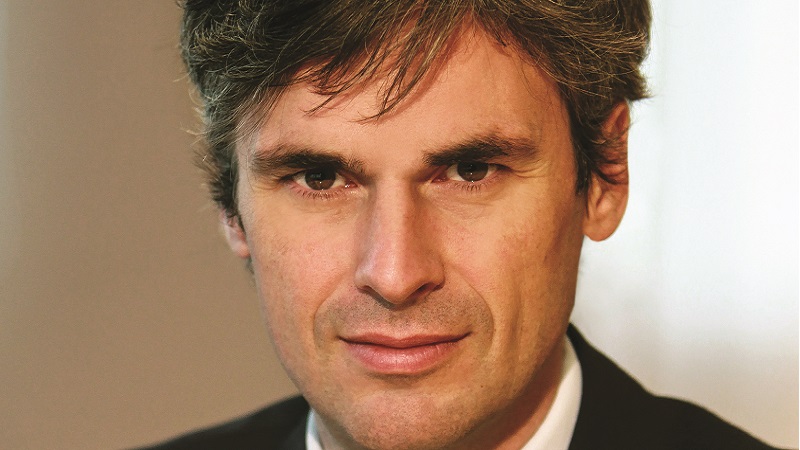Inflation, ‘stranded’ assets and the reversal of key mega-trends that have pushed yields lower are the biggest concerns for the bond market today, says M&G head of retail fixed interest Jim Leaviss. He says it is a ‘crazy’ time for bonds, and the market requires careful navigation today.
Speaking at the recent Square Mile Investment Conference, Leaviss (pictured) said it is the first time in his 30-year career that he has worried about inflation.
“The bond market doesn’t seem to believe that inflation is here to stay,” he said. “There are still negative yields in Germany and zero yields in most developed markets. The US Tips market is suggesting approximately 2.5% inflation over the next five years and a bit lower thereafter.”
While he pointed out that the end of the ‘bond bubble’ has been predicted multiple times, this time, he believes, wages could be the key swing factor. “If there is no wage inflation, there will never be significant consumer price inflation. This is the first time we’ve seen it as a big risk.”
Sustainability is the other major issue for the bond market. Leaviss said that it is increasingly important for investors, admitting that there are relatively few people who can influence the direction of climate change, but those who allocate capital are among them. “Our clients want us to put money into green bonds and green projects,” he said.
There are two elements of sustainability that are important for bond managers today. The first is to navigate the nascent green bond market. He said that many green bonds are coming to market at a premium to traditional government bonds.
Stranded assets problem
The second is the problem of ‘stranded assets’. Leaviss said: “This is my biggest concern. What if we own positions in tobacco companies – which are on attractive yields at the moment – or in shale gas companies in the United States, and those assets become largely worthless? Mark Carney recognised this as a systemic problem.
“We need to do something because it’s the right thing to do, but also because our portfolios could be significantly harmed by these potentially difficult assets. It is going to be really important and potentially the difference between success and failure – perhaps not this year or next year, but over the medium term.”
Effect of mega-trends cannot be ignored
The final issue for fixed income investors to consider is that some of the mega-trends that have sent inflation lower for not just decades, but centuries, are about to reverse. He pointed to a recent quote from Federal Reserve chair Jay Powell: “While the underlying global disinflationary factors are likely to evolve over time, there is little reason to think that they have suddenly reversed or abated. It seems more likely that they will continue to weigh on inflation as the pandemic passes into history.”
Leaviss said: “Bond yields have fallen year after year, decade after decade, with a brief exception in the 1970s. We always ask ourselves, ‘Why is this the case?’. He says ageing populations have undoubtedly been a contributing factor, because people save more as they age. This is a centuries-old trend. Technology has also been important – from the electric light, to the motor car, to the internet. This has driven down inflation. Globalisation and the ability to source cheap labour and manufacturing from elsewhere has been another long term factor, pushing yields lower.
He pointed out that in the short term, all of those trends are under threat and could contribute to higher inflation. He said: “Longevity has actually fallen in the last year. That is Covid-related and may not be a permanent trend, but it is a concern.”
Governments are increasingly being forced to address income inequalities in their populations. Rich people have benefitted from favourable tax policies that have allowed them to keep more of their capital and in many cases, divert it into savings.
Leaviss said: “It is possible that governments will go after rich people to try and address inequalities.”
Reversal of globalisation?
Finally, he added, the changing geopolitical picture – around Brexit, around trade wars between the US and China, around shortening supply chains – could mean that this decades long trend of globalisation could reverse. While he remains convinced that inflation of the 70s and 80s was the exception rather than the rule, there are reasons to be worried today.
The impact on the direction of bond yields is not clear, but it should give investors pause for thought. Yields don’t give investors a lot of room for manoeuvre. The bond market is precarious and investors need to be in experienced hands.










